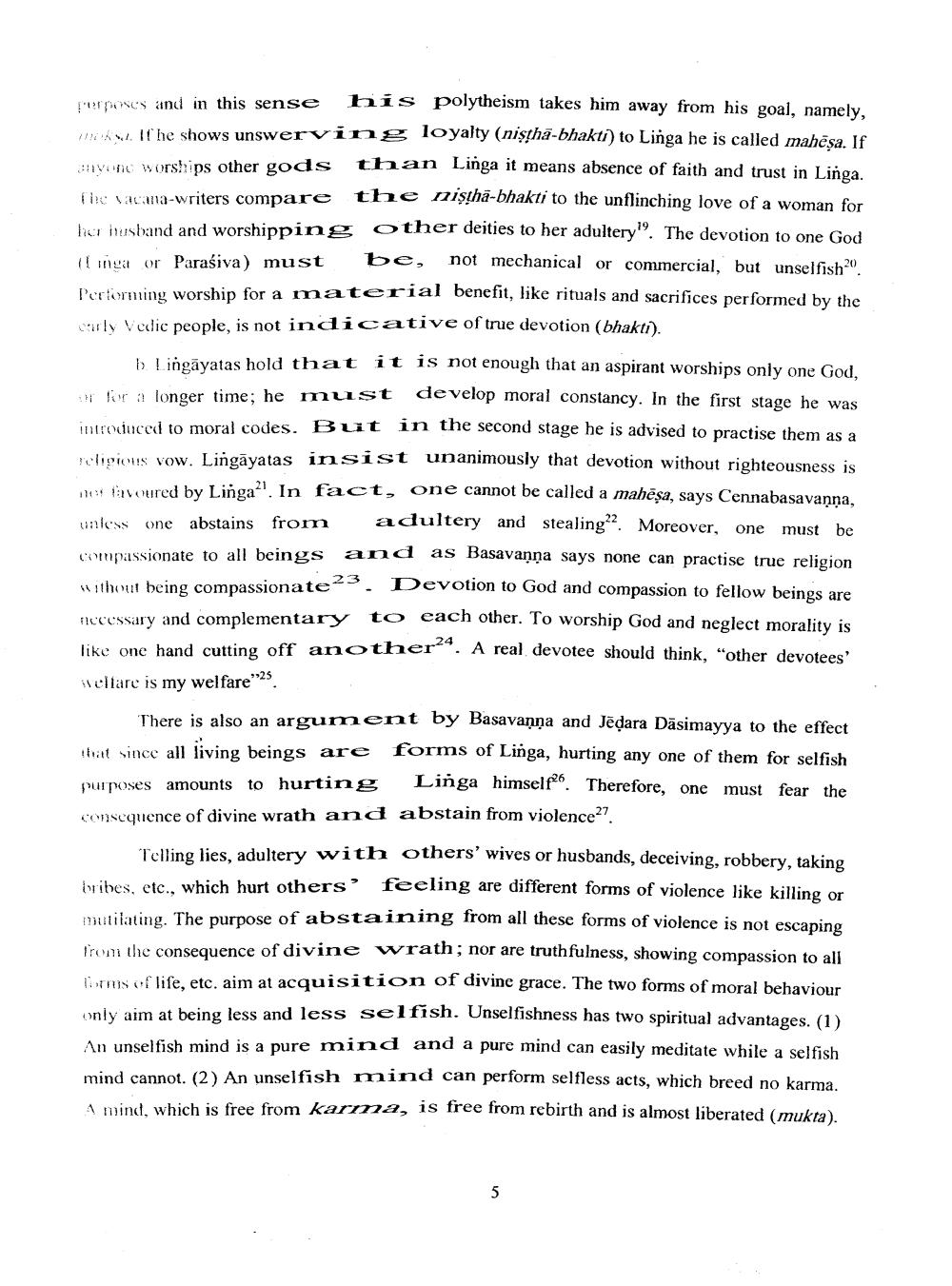Book Title: Synthesis of Yoga in Lingayatism Author(s): N G Mahadevappa Publisher: N G Mahadevappa View full book textPage 5
________________ purposes and in this sense his polytheism takes him away from his goal, namely, moks. If he shows unswerving loyalty (niṣṭhā-bhakti) to Linga he is called mahesa. If anyone wonships other gods than Linga it means absence of faith and trust in Linga. The vacana-writers compare the nistha-bhakti to the unflinching love of a woman for her husband and worshipping other deities to her adultery". The devotion to one God (Inga or Paraśiva) must be, not mechanical or commercial, but unselfish20. Performing worship for a material benefit, like rituals and sacrifices performed by the carly Vedic people, is not indicative of true devotion (bhakti). b. Lingayatas hold that it is not enough that an aspirant worships only one God, or for a longer time; he must develop moral constancy. In the first stage he was introduced to moral codes. But in the second stage he is advised to practise them as a religious vow. Lingayatas insist unanimously that devotion without righteousness is new favoured by Linga". In fact, one cannot be called a mahesa, says Cennabasavanna, unless one abstains from adultery and stealing22. Moreover, one must be compassionate to all beings and as Basavanna says none can practise true religion without being compassionate23. Devotion to God and compassion to fellow beings are necessary and complementary to each other. To worship God and neglect morality is like one hand cutting off another24. A real devotee should think, "other devotees' welfare is my welfare"25. There is also an argument by Basavanna and Jedara Dasimayya to the effect that since all living beings are forms of Linga, hurting any one of them for selfish Linga himself. Therefore, one must fear the purposes amounts to hurting consequence of divine wrath and abstain from violence27. Telling lies, adultery with bribes, etc., which hurt others' others' wives or husbands, deceiving, robbery, taking feeling are different forms of violence like killing or mutilating. The purpose of abstaining from all these forms of violence is not escaping from the consequence of divine wrath; nor are truthfulness, showing compassion to all forms of life, etc. aim at acquisition of divine grace. The two forms of moral behaviour only aim at being less and less selfish. Unselfishness has two spiritual advantages. (1) An unselfish mind is a pure mind and a pure mind can easily meditate while a selfish mind cannot. (2) An unselfish mind can perform selfless acts, which breed no karma. A mind, which is free from karma, is free from rebirth and is almost liberated (mukta). 5Page Navigation
1 ... 3 4 5 6 7 8 9 10 11 12 13 14 15 16
